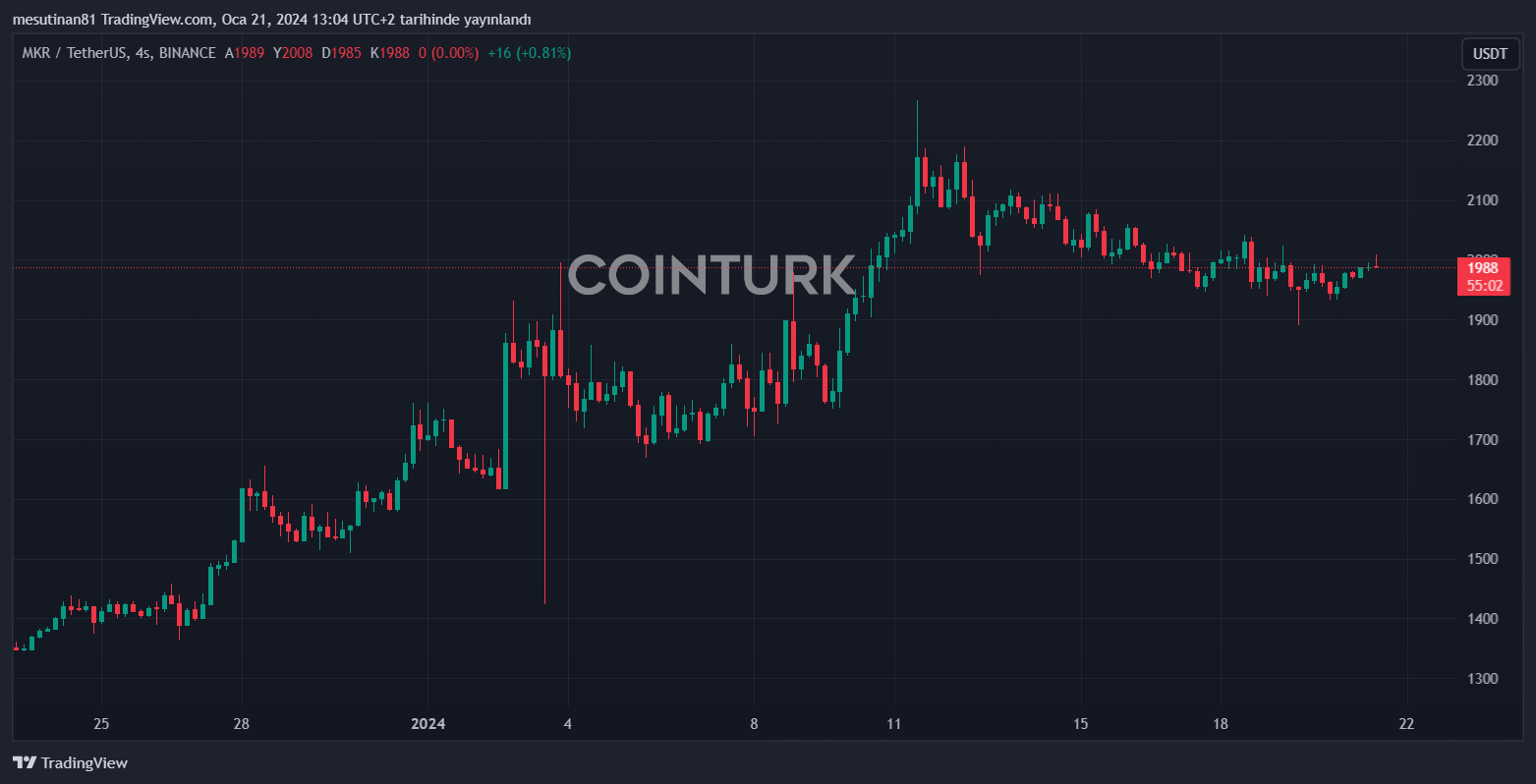Altcoin Maker (MKR) played a significant role in real-world asset (RWA) transactions within decentralized finance (DeFi), showcasing a strong daily average performance of $94.5 million in the second week of January. Despite this impressive transaction volume, there are fundamental challenges that investors need to consider.
Altcoin Maker’s Transaction Volume Dominance
Altcoin MKR stands out with significant RWA transaction volume in the midst of market fluctuations, indicating ongoing activity and interest in the MakerDAO ecosystem. This positive indicator for the protocol is complemented by a strategic move towards tokenized T-Bills, which have proven successful and contribute to more than half of the protocol’s fee revenue.
This diversification represents a potential growth engine amidst other challenges, offering a positive direction. However, the overall picture for RWAs in MakerDAO is not entirely positive. The total value locked (TVL) in RWAs has decreased by 33% since October, raising concerns about investors’ waning interest in the platform’s integration of real-world assets.
Investor sentiment reflects the decrease in TVL. Accordingly, a significant amount of $871 million has been withdrawn from Maker’s RWA offerings in the last three months. This situation points to potential concerns related to specific RWA deals or broader market volatility.

MKR is currently trading at $1,988. The market value of MKR is currently at the $1.8 billion level.
Revival or Paradigm Shift?
Despite the positive sentiment and demand for altcoin MKR, questions about the sustainability of this momentum arise if the RWA downturn continues. MKR’s future as an RWA leader remains uncertain, and the effects of potential fluctuations remain a significant concern.
The capital outflow could be a temporary setback or an indicator of a broader shift in investor preferences towards different RWA platforms or asset classes. Time will tell whether MakerDAO can regain investor confidence and revitalize the RWA sector.
The challenges and opportunities of RWAs in DeFi are summarized in MakerDAO’s story. While high transaction volumes and innovative T-Bill offerings are promising, the significant drop in RWA inflows raises questions about the protocol’s long-term sustainability.
The success of RWAs in MakerDAO and DeFi as a whole depends on finding the right balance between innovation, risk management, and building trust with investors. MakerDAO faces the risk of rewriting the RWA narrative or losing its significance in the evolving environment of real-world assets in DeFi.

 Türkçe
Türkçe Español
Español









